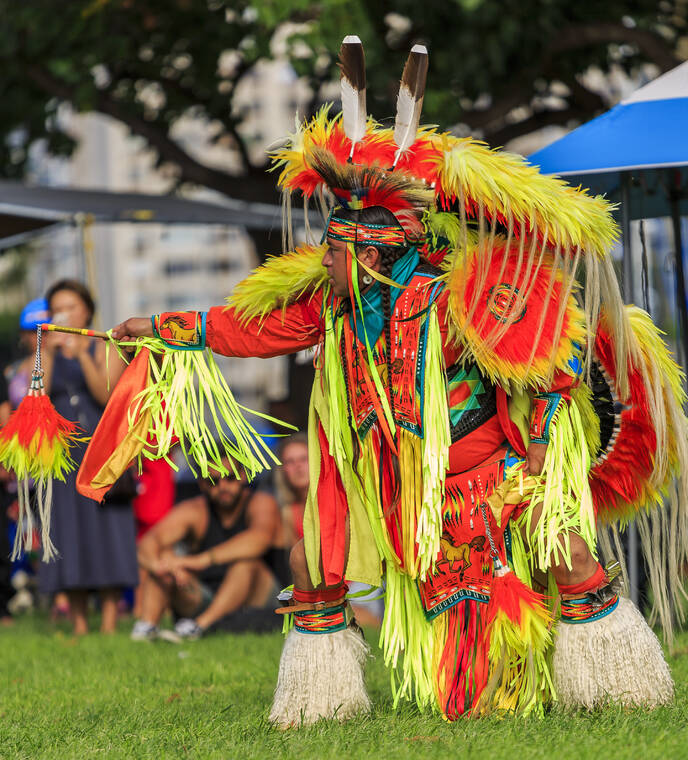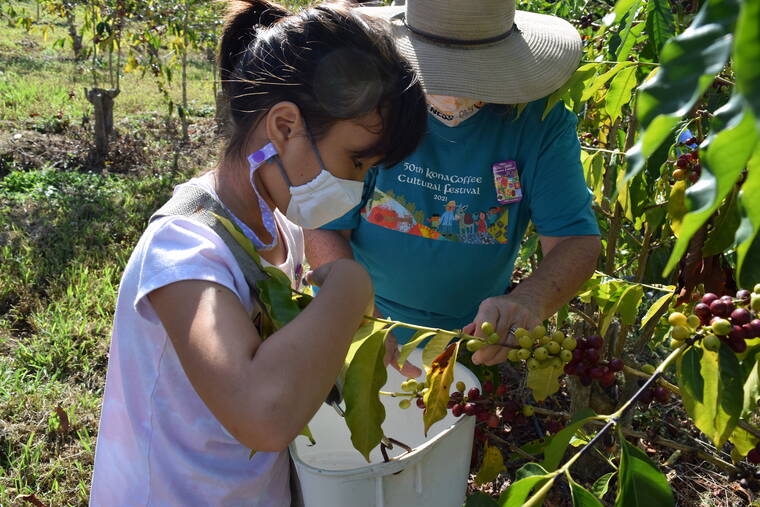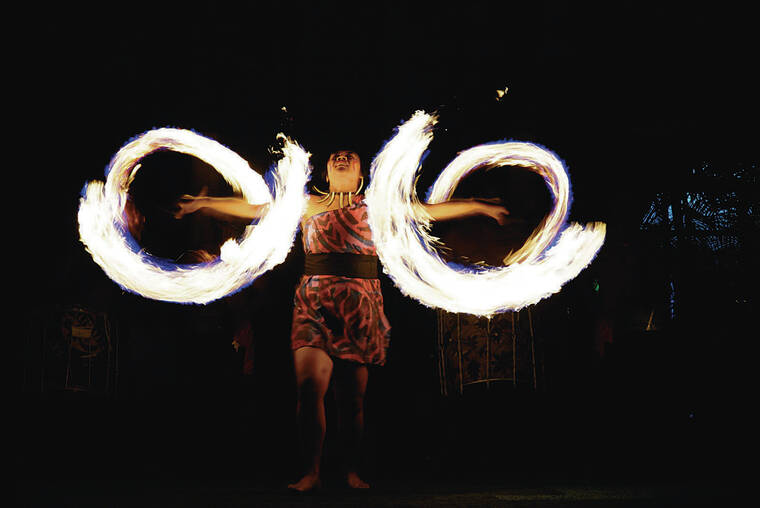The Honolulu Intertribal Powwow, the We Are Samoa Festival and the Kona Coffee Cultural Festival are some of the ethnic and cultural celebrations expected to return in person this year, after two years of cancellations and major changes due to the COVID-19 pandemic.
Mae Prieto, a longtime Oahu Intertribal Council member, said the annual Intertribal Powwow is especially important because there is no Native American reservation in Hawaii, so the festival is a time when community members come together to celebrate their culture.
“Sharing our culture, singing, dancing and meeting our neighbors — those are really important for us to maintain our culture, our identity and remember who we are,” said Prieto, who is Native Hawaiian and Otoe-Missouria, a tribe based in Oklahoma. “We want the world and the community to know that we’re still here and that we’re a valuable part of the community.”
The Oahu Intertribal Council, a nonprofit that seeks to share, promote and educate about Native American traditions, cultures and heritage, is one of 86 community groups and projects that benefited from the Hawaii Tourism Authority’s Community Enrichment grant program. The program seeks to support projects, events and festivals that showcase Hawaii’s cultures and provide authentic experiences for tourists and local residents.
HTA recently announced that it had awarded $2.9 million in funding this year. Due to the pandemic and limited funding, the agency said money for the program was decreased in 2020, and no grants were issued in 2021.
Prieto said the $5,000 grant the council received would help with promoting and advertising the festival, which attracted between 3,000 and 10,000 people each year before the pandemic. They canceled Powwow in 2020 and 2021 due to the pandemic but are hoping to bring the festival back this year in person in September at the Bishop Museum. The council is also planning to invite Native American communities from the mainland, as well as Native Hawaiian groups, to Powwow, she said.
“This is going to be the third time that we’re trying to have the 46th annual Powwow,” she said. “Everybody wants to dance. Everybody wants to sing and come together. We miss coming together.”
Valerie Corcoran, Kona Coffee Cultural Festival president, said planners are hoping the festival returns as a fully in-person event in November. The annual celebration, which attracted about 12,000 to 15,000 people pre-pandemic, honors the deep history of Kona coffee and farmers. It was hosted as a hybrid of in-person and virtual events in 2021, marking 50 years since its inception. The celebration was canceled in 2020 due to the pandemic.
The festival’s $75,000 HTA grant will help it cover event production and marketing costs. Corcoran added that, although they were grateful to host the festival in 2021, nothing compares to being fully in-person.
“It’s about us telling the story of the farmers,” she said. “It’s really exciting.”
At the Polynesian Cultural Center, Seth Casey, senior director of marketing, said the $5,000 HTA grant it received will help with the operational and marketing costs of the We Are Samoa Festival and World Fireknife competition, which attracted about 8,000 people before the pandemic. Due to the pandemic, Casey said, they had to cancel the We Are Samoa Festival in 2020 and 2021. The World Fireknife competition was also canceled in 2020 and was scaled back in 2021, he said.
Casey said the festival began many years ago to help educate younger generations about Samoan traditions and to keep the culture alive. In addition to the popular World Fireknife competition, he said, the We Are Samoa Festival, which they are planning to hold in person in May, provides opportunities for students and locals to perform, dance and showcase their heritage.
“We love our culture. We want to make sure that it’s represented accurately and with the proper respect that it deserves,” Casey said. “Providing a little more of an in-depth cultural experience is invaluable to both locals and visitors who want to learn more about the culture.”
———
Jayna Omaye covers ethnic and cultural affairs and is a corps member of Report for America, a national service organization that places journalists in local newsrooms to report on undercovered issues and communities.






